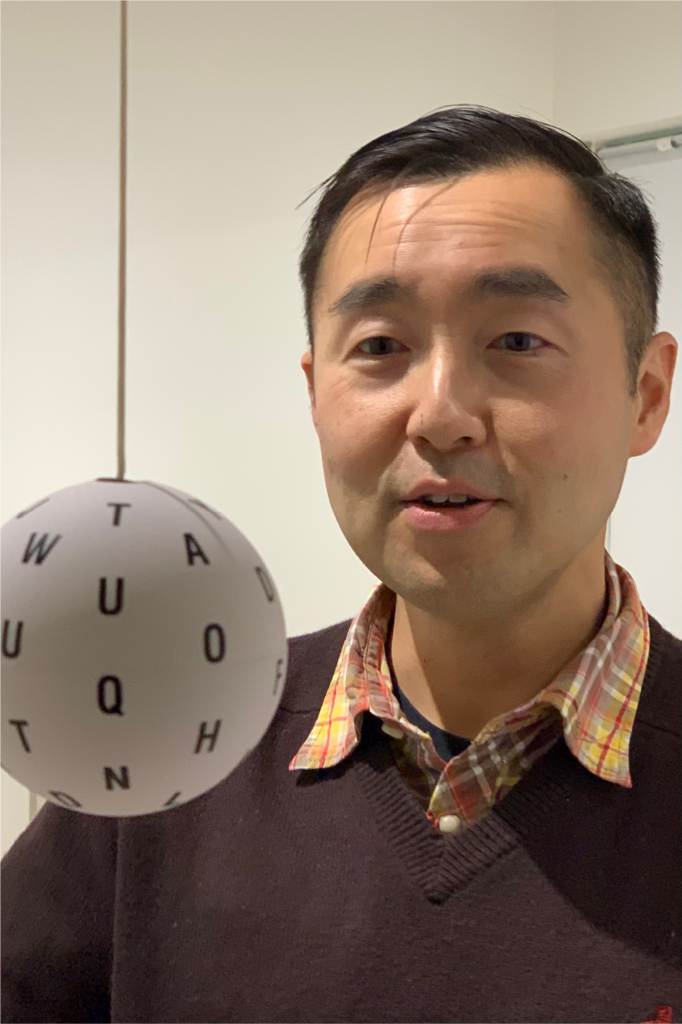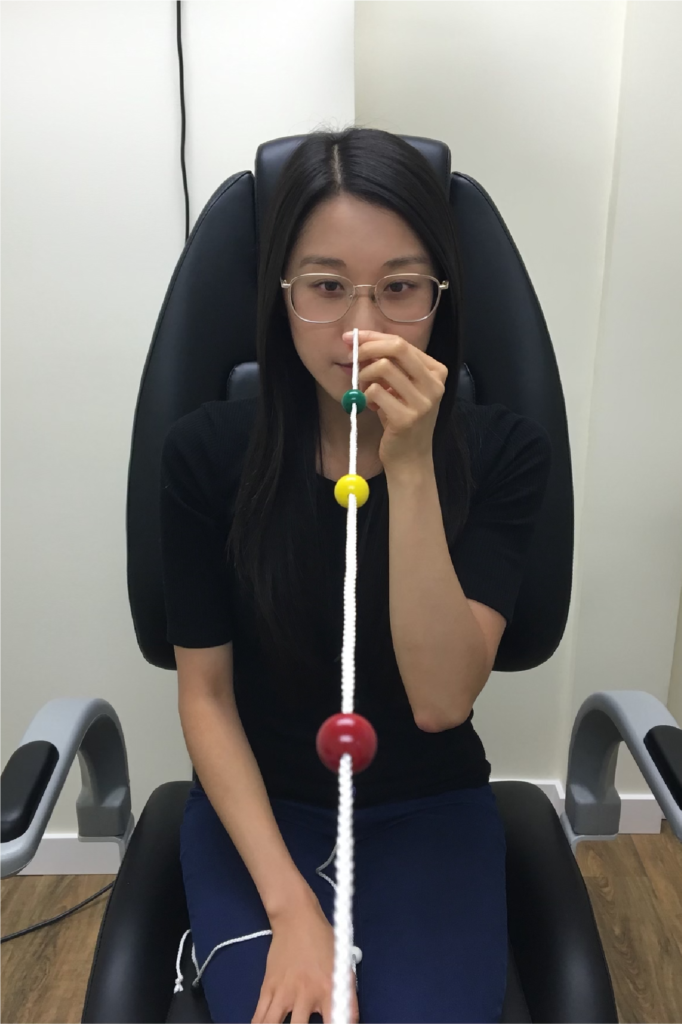Vision Therapy
Vision is not just how well you can see; it is how the eyes and brain work together to produce clear and comfortable vision. Vision therapy (also known as neuro-visual rehabilitation) trains visual skills such as eye focusing, teaming, tracking and visual processing with the goal of improving visual efficiency.

Vision therapy helps with:
- Post-trauma/concussion visual syndrome
- Vision-related learning conditions
- Strabismus (eye turn)
- Amblyopia (lazy eye)
- Eye focusing, teaming, movement and tracking
- Sports vision enhancement
If you suffer from the following symptoms, you may be a candidate for vision therapy:
- Headaches when reading or doing near work
- Eye strain and fatigue
- Double vision
- Difficulty switching focus at different distances
- Skipping words or lines when reading
- Discomfort in crowded and busy environments
Neuro-visual rehabilitation following a brain injury
Studies show that 90% of Traumatic Brain Injury patients suffer from visual dysfunction such as, but not limited to*:
- Blurred vision
- Light sensitivity
- Reduction or loss of visual field
- Headaches with visual tasks
- Reading difficulty
- Difficulties with eye movements
*resource: www.noravisionrehab.org
Vision therapy process
A comprehensive eye examination that assesses the glasses prescription and eye health is the first step prior to starting vision therapy. Then, a vision therapy assessment is performed to diagnose visual conditions and determine whether one will be a candidate for vision therapy. Based on the vision therapy assessment, the doctor will design a vision therapy program customized to the patient. One-on-one vision therapy sessions with the vision therapist may include lenses, prisms, free-space activities and computer activities. A progress evaluation is done every 10-15 sessions to determine further course of treatment.
FAQ about Vision Therapy
1. Does MSP or extended health cover vision therapy?
Vision therapy is not covered under MSP and extended health insurance. If your visual symptoms are caused by a motor-vehicle accident or work-related injury, treatment may be covered. Please contact our clinic to discuss your case.
2. Do I still need an eye exam when I already had one done by another optometrist?
If you had an eye exam with another optometrist within the past 6 months, you do not need another eye exam before the vision therapy assessment. Exam notes may be requested from your primary care optometrist.
3. I suffer from visual symptoms caused by a motor-vehicle accident. Does ICBC cover vision therapy?
If you have an active ICBC claim number, vision therapy may be covered. Please contact our clinic directly to discuss your case.
4. I suffer from visual symptoms caused by an injury at work. Is vision therapy covered?
Vision therapy may be covered under certain workplace rehabilitation programs. Please contact our clinic directly to discuss your case.
5. Do I need a referral for vision therapy?
No, a referral is not needed. If you are referred by another healthcare professional (ex. optometrist, occupational therapist, physiotherapist, etc.), please let us know so we can share our exam findings with them.
6. How many vision therapy sessions do I need?
The number of sessions depend on the visual condition, complexity of the condition and patient compliance. Because many factors are in play, this will be discussed by the doctor at your vision therapy assessment.

Referrals
If you are a healthcare professional and would like to refer a patient for vision therapy, please fill out the referral form and fax or email to us. We look forward to working with you.
Contact info:
Tel: 604-821-0202
Fax: 604-270-0327
Daphne Cheng, O.D.
Dr. Daphne Cheng, Optometrist
3255-4000 No. 3 Road
Richmond, B.C. V6X 0J8
604-821-0202
